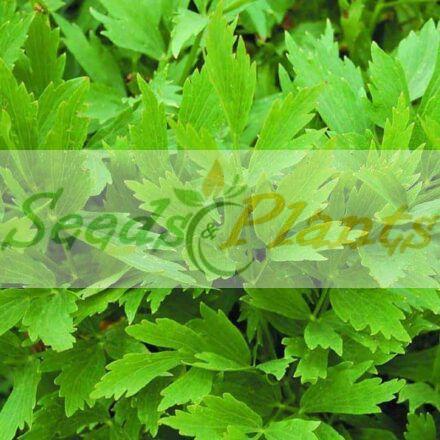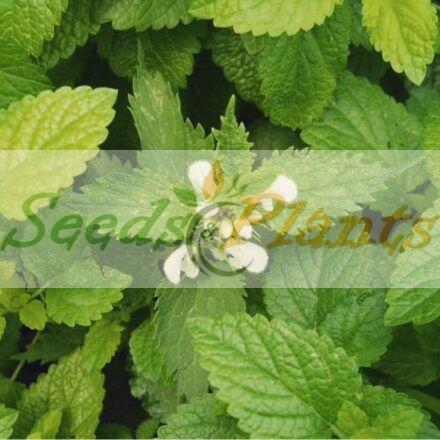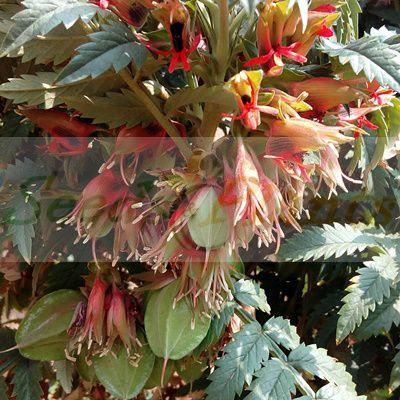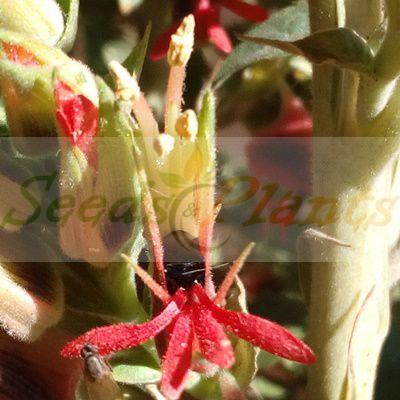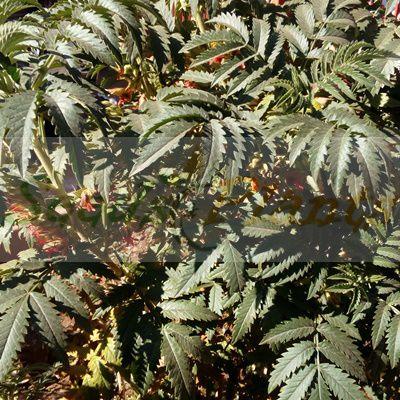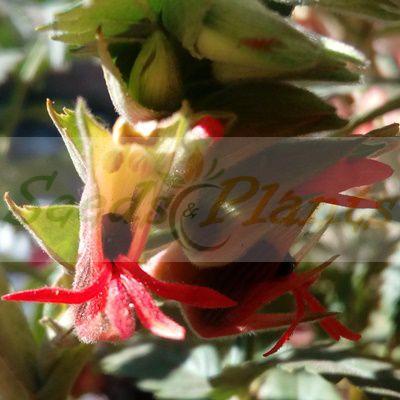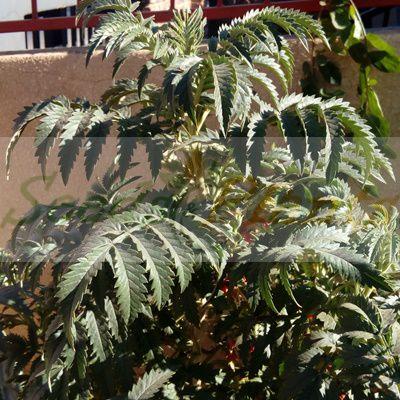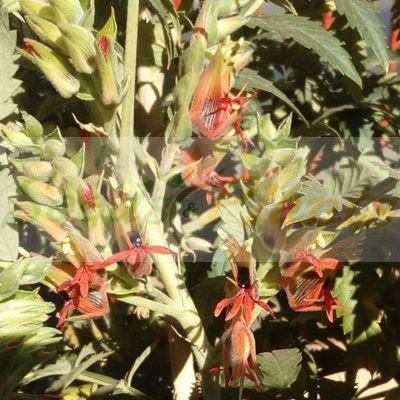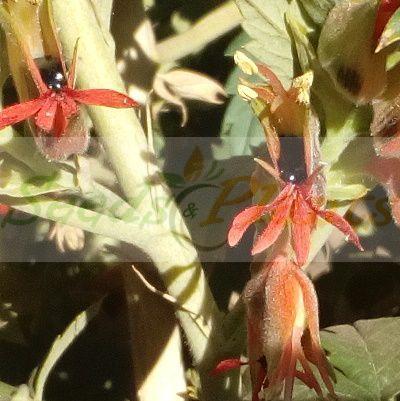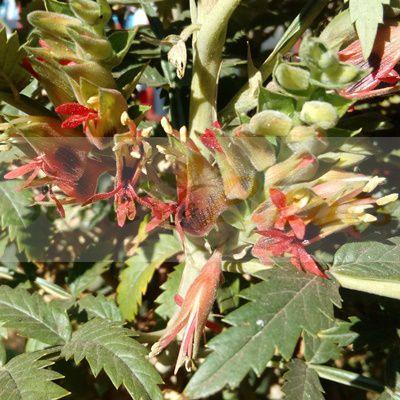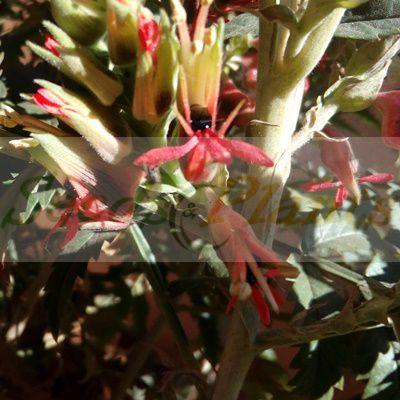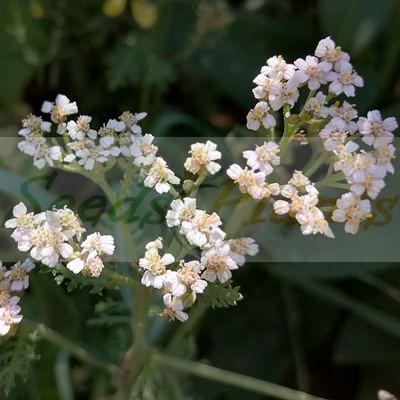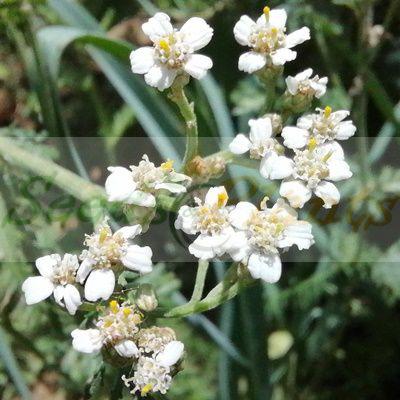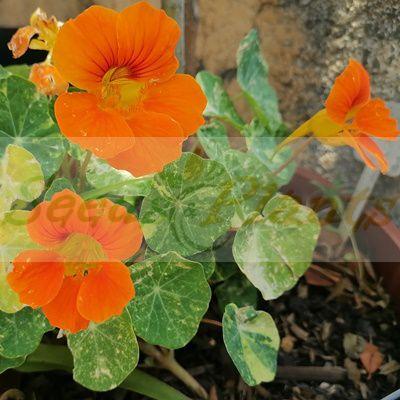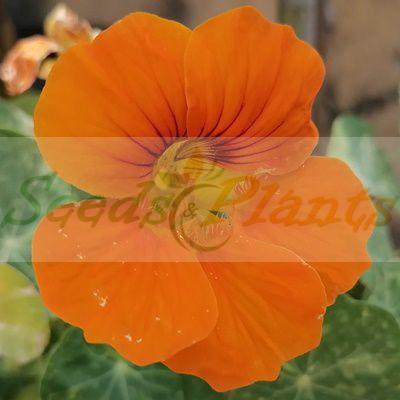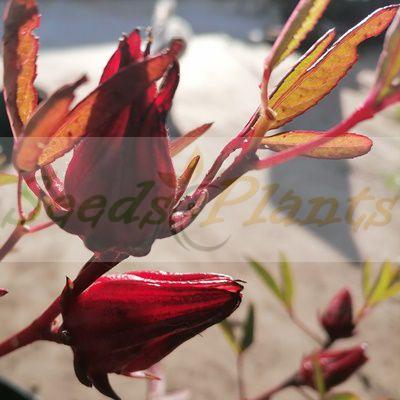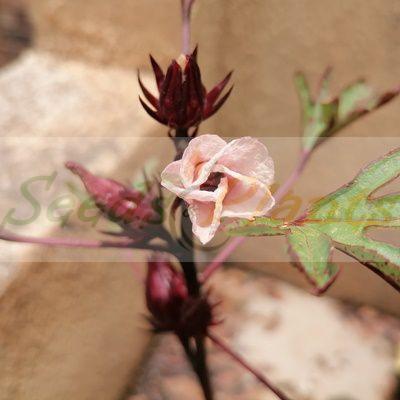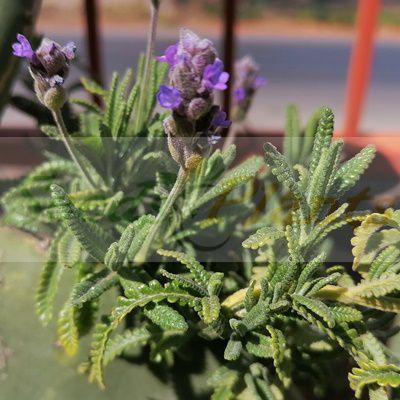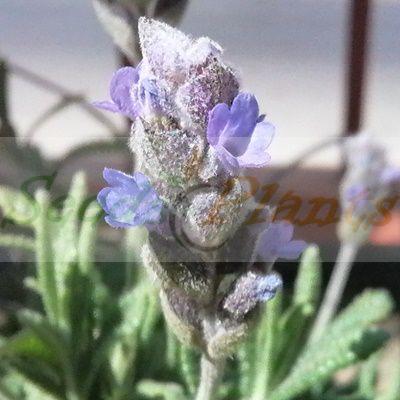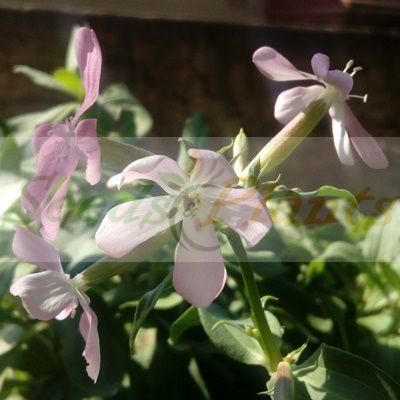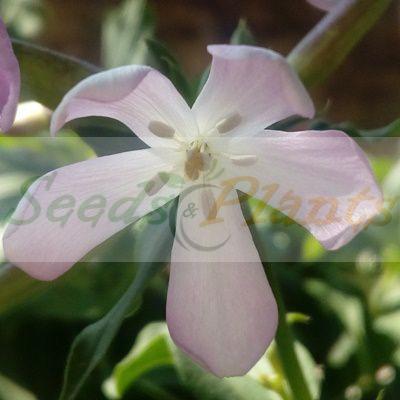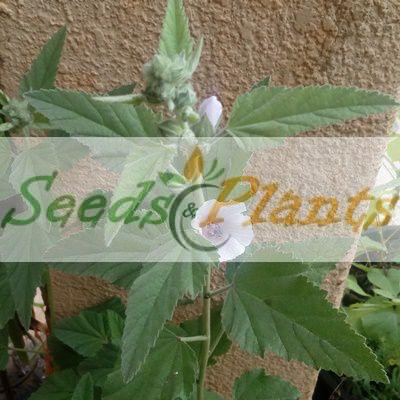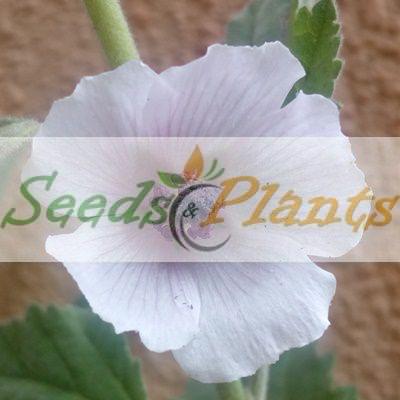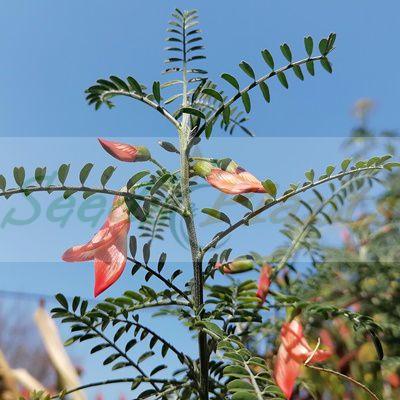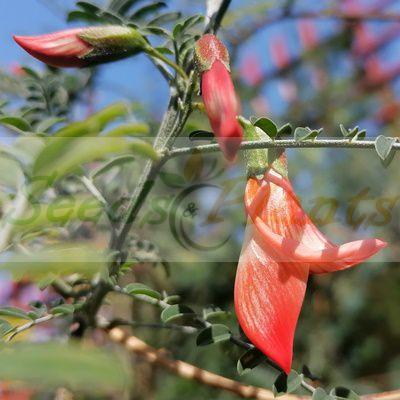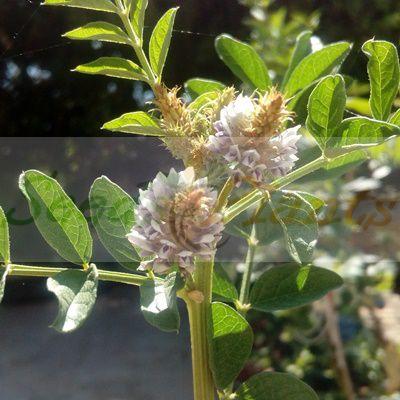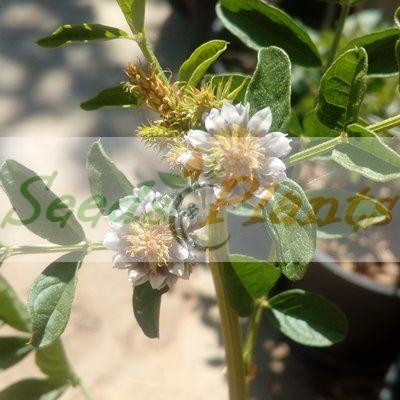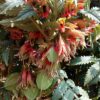🌿 Shrub Quick Facts
Shrub Info
- 🌍 Origin / Region: Lesotho, Namibia, South Africa
- 🌳 Shrub Features: Flowering
- 🌿 Foliage Type: Evergreen
- 📏 Mature Height: 1.2-2.5m
- 🌸 Flower Color: Red, Red-Orange
Medicinal Info
- 🌿 Medicinal Part: Leaf, Root, Root bark
- 🍵 Herbal Preparation: Decoction, Extract / Tincture, Ointments/Creams, Paste, Poultice
- ⚕️ Healing System: African Traditional Medicine
Growth Traits
- 🌱 Life Cycle: Perennial
- 🌾 Plant Type: Shrub
- 🪴 Growth Habit: Bushy, Fast Growing, Upright
Growing Requirements
- 🌞 Sun Exposure: Full Sun
- ☀️ Growing Conditions: Cold Tolerant, Cool Weather, Drought Tolerant, Frost Tolerant
- 🟤 Soil Preference: Moderately Fertile, Tolerant of most soils, Well-Drained
Honey Flower – 10 Seeds
(Melianthus comosus)
R30.00
A well known medicinal plant, the brightly colored orange red flowers produce an abundance of black nectar that attracts Sunbirds, Cape white eyes, bees and butterflies.
Common Names: Crown honeyflower (Eng) and kruidjie-roer-my -nie (Afr.)
Seed Type: Organic – Harvested from our own plants.
Indoor Sowing: Spring and Autumn.
Direct Sowing: Autumn.
In stock
🌿 Shrub Quick Facts
Shrub Info
- 🌍 Origin / Region: Lesotho, Namibia, South Africa
- 🌳 Shrub Features: Flowering
- 🌿 Foliage Type: Evergreen
- 📏 Mature Height: 1.2-2.5m
- 🌸 Flower Color: Red, Red-Orange
Medicinal Info
- 🌿 Medicinal Part: Leaf, Root, Root bark
- 🍵 Herbal Preparation: Decoction, Extract / Tincture, Ointments/Creams, Paste, Poultice
- ⚕️ Healing System: African Traditional Medicine
Growth Traits
- 🌱 Life Cycle: Perennial
- 🌾 Plant Type: Shrub
- 🪴 Growth Habit: Bushy, Fast Growing, Upright
Growing Requirements
- 🌞 Sun Exposure: Full Sun
- ☀️ Growing Conditions: Cold Tolerant, Cool Weather, Drought Tolerant, Frost Tolerant
- 🟤 Soil Preference: Moderately Fertile, Tolerant of most soils, Well-Drained
Honey Flower (Melianthus comosus) is a fast growing, drought resistant multi-stemmed shrub, with attractive feathery-green foliage. The brightly colored orange or red flowers produce an abundance of black nectar that attracts Sunbirds, Cape white eyes, bees and butterflies. The plant is also known as crown honeyflower (Eng); kruidjie-roer-my -nie (Afr.).
All parts of the plant produce a strong, unpleasant smell when bruised. Melianthus comes from the Greek word Meli = honey and anthos = flower meaning that it has abundant nectar. Comosus means “with a tuft of hair or leaves”.
Honey Flower Medicinal Benefits
Leaf poultices and leaf decoctions are widely used to treat septic wounds, sores, bruises, backache and rheumatic joints. Leaf infusions can be added to bath water to treat backache, rheumatic fever and rheumatic joints. Leaf poultices and leaf infusions (wash) are used topically to treat septic wounds, sores and bruises – an ointment can be made by simmering the leaves in oil or lard.
It is a traditional remedy for snakebite.
Growing Honey Flower
Indoor Sowing: Spring and Autumn.
Direct Sowing: Autumn.
- It is easily propagated from seed, which is large, black and easy to handle.
- Sow the Honey Flower seeds in spring or autumn, in deep seed trays in a medium of compost only.
- When sowing seed in the colder months, germination may take about four weeks or longer.
- Cover the seeds, keep them moist, leave the seedlings in the trays until the fourth leaf stage.
- Transplant into a medium of 2 parts compost and 2 parts loam.
- It is important in cold areas to keep the pots warm and sheltered during winter.
- Prefers full sun and well-drained soil.
- The plant needs to be pruned to encourage new growth and to keep it neat.
Does this plant have medicinal uses?
Traditionally, Honey Flower has a history of use in African Traditional Medicine. Seeds are sold for cultivation purposes only.
Disclaimer
Medicinal Information:
All medicinal information on this website is for educational and informational purposes only and may not be construed as medical advice. The information is not intended to replace medical advice or treatment offered by healthcare professionals.
Seeds, Plants, Plant Cuttings, Geophytes and Dried Herbs:
In some countries and provinces, certain plants are deemed as invasive and are not allowed to be planted at all, whilst some plants are allowed to be grown only in certain areas or provinces. The onus is on you as the buyer to familiarize yourself with the regulations pertaining to your location, before purchasing any of our seeds, plants, plant cuttings, geophytes or dried herbs. We will not be held liable, should you purchase any seeds, plants, plant cuttings, geophytes or dried herbs. from us which are prohibited in your country or province.

